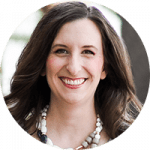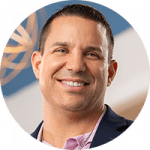Financial advisors step up during the shutdown
Financial advisors step up during the shutdown

The COVID-19 pandemic and resulting stay-at-home orders have significantly impacted how financial advisors are interacting with their clients. Many of their remote best practices may last well beyond the shutdown.
Patrick Kennedy, chief customer officer at McKinsey’s PriceMetrix, shared the following take on the role of the financial advisor in a blog post from several years ago called “The Value of Advice During Rocky Times”:
“The role of a financial advisor is both critical and varied during these times. Not only are you offering wealth management advice, but you are likely acting as a confidant, coach, and psychologist as you try to soothe your clients’ nerves.
“There are so many ways you can help your clients during this period. Most critically, be available and communicative. Your clients will likely have more of a need than ever to hear from you. They will want to know what is causing the market volatility, how it affects them, and what they should do. Be prepared to answer their questions. Put their concerns in broad perspective.”
We circled back with several financial advisors interviewed for Proactive Advisor Magazine to see how they have “stepped up” to meet client needs during this most difficult period for all.
While all of these advisors saw the current societal challenges as extraordinary in the context of the public health crisis, they also saw them largely as another—albeit unprecedented—opportunity along their continual mission to place clients’ needs first.
Fortunately, that attitude is shared by the vast majority of their colleagues in the industry, whether they are broker-dealers, investment platforms, research and software providers, or third-party investment managers. It has been truly remarkable how the financial-services industry at large has responded so quickly and smoothly to the sweeping changes in how they have had to conduct their daily business.
We asked several financial advisors to briefly share how they first realized that major change was coming due to COVID-19 and the actions they have taken to better serve clients during the shutdown.

Mary Lyons, founder of Wealth Woman Inc. and a managing director at Personal Economics Group (PEG) in Dallas; and Eric Alexander, a PEG financial professional
Read our interview with Mary Lyons
Read our interview with Eric Alexander
Mary Lyons: Eric’s kids were on spring break during the second week of March, and my kids had spring break the next week. By that time, I had already had conversations with a few of my clients who are doctors and emergency room physicians, and while nothing here was on lockdown yet, it became apparent to me that this probably was a big deal.
Eric Alexander: On Sunday night, March 15, we reached out to the entire team to discuss plans to start working remotely. That was a week before Dallas’ shelter-in-place order—and about the time of the first shelter-in-place order in San Francisco.
Mary: Back in December, we were thinking it would be nice to be able to work remotely whenever we wanted to go away for several months. Separately, at the beginning of the year, we were in the process of moving to a new client relationship management system that gave us more transparency into the client experience. It would enable us to see when clients opened our newsletters or went on our website or Facebook page, tracking if they engaged with us a certain number of times to determine if they were ready for a phone call. We were going to launch this in late spring, but because of working remotely, we ended up launching April 1. While the timing was coincidental, it is now much easier to communicate with clients remotely.
Eric: The first few days were a little clunky as we had to get a hold of investment managers who were also working remotely, but after the initial growing pains, it’s been pretty seamless.
Mary: We called 100% of our clients during the first two weeks of the market downturn, and they’ve been happily surprised by how well their portfolios have been doing. A few people made adjustments due to their risk tolerance levels, but overall, our algorithm-based approach has kept our clients pretty happy. I think having a proactive approach where we’re reaching out to clients, going out of our way to add value through this time period, makes a really big difference.
Eric: We’re also communicating more often to clients in our newsletters, now doing them once or twice a week instead of once a quarter. We are covering big-picture topics like the stimulus package and some of the key factors driving the market. We also cover more tactical strategies like budgeting and looking for easy ways to ease cash-flow stress. We’re not just doing it through newsletters, either—we went old school and picked up the phone four or five days straight, all day long, making calls to all of our clients. During this time, the personal touch is a big deal.


Richard Grant, founder, CFO, and managing member at RFG Capital Management LLC in Gilbert, Arizona
Basically, all of our managers have offered timely webinars and other communications during this period. While I appreciate those efforts, I am much more interested in how their strategies are performing and if they are managing risk in the way they were structurally designed. I am happy to say that has usually been the case.
I am also very interested in any tools that our managers can provide related to reporting and illustrating to clients how their portfolios have performed during this difficult and volatile market period. One of our managers has a user-friendly illustrative tool for each client’s portfolio performance, tracking their investments versus a predetermined personal benchmark. As I reviewed first-quarter performance with clients, they could see not only the overall trend for their investments versus the benchmarks but also how their portfolio allocations may have changed since the beginning of the year. That is very reassuring and easy to understand for clients.

Sunny (Shuai) Wang, founder, president, and principal financial advisor of Essence Wealth and Insurance Services in Santa Clara, California
Read our interview with Sunny Wang
Santa Clara County, as part of the San Francisco Bay area, adopted one of the nation’s earliest shelter-in-place orders on March 16, before the governor placed the statewide order March 19. I saw this coming probably two weeks before that, so I put myself in self-quarantine. I didn’t want a situation of passing the virus to my clients or having someone infect me. With a good number of Silicon Valley clients, I am very comfortable and proficient with technology. In the beginning, I was doing more FaceTime, and some Zoom and Google Hangouts, but it is interesting that I am now primarily doing phone calls. Most clients prefer that because they’re home all of the time and they don’t want to feel they have to dress up.
No, but I’ve been thinking about working remotely since last year. I went on a trip for three weeks and thought that it would be great to be able to work remotely out of the country or on the road. Now I see that it’s totally doable. It helps that since 2012, I have had no paper files—everything is digitized and in the cloud.
I sent out several mass emails to clients when this shutdown started, and I’m planning to send out more emails on a regular basis. I encourage all clients to reach out if they would like to speak one-on-one. I have spoken to several clients about their specific portfolio performance. A few have some concerns, but no one has really felt any sense of panic. We set expectations when we start working with clients, and this is the kind of event we’ve been preparing for in the market, including a possible recession. We designed their plans in a way that they would be able to weather this type of market condition. I have also been preparing clients for a potential recovery.
I use a third-party unified management account platform that has a good number of tactical managers. I have been very impressed with most managers’ performance. When the market was performing strongly before COVID-19, my clients were generally outperforming the overall market indexes. Since the decline started, their drawdowns have been less than major indexes. Some managers have been doing very well in this market, not just mitigating losses but seeing positive returns. Working with several different money managers allows clients to have exposure to sophisticated investment philosophies and different strategic approaches, all developed by some experienced and capable people. That is, in my opinion, a way for me to add value for clients.

Michael Mandarino, founder of 123 Investing in Apollo Beach, Florida
Read our interview with Michael Mandarino
By mid-March, even my networking group made a conscious decision to no longer meet in person, and now we’re meeting remotely via Zoom. When the administration’s Coronavirus Task Force started talking about having gatherings with 10 people or less, that’s when I decided to no longer meet with clients in person. I’m now doing everything online and with phone calls.
Actually, it was easy because I have already worked remotely in many cases and have been using Zoom. I have clients in 20 states, in addition to three or four countries, and they are already used to working with me remotely. I’ve been doing it since 2006.
I had been conducting webinars monthly or quarterly, discussing different topics with clients and prospects, but now I’m doing webinars weekly. People have been at home and their schedules have slowed down, so they have more time to engage with different subjects related to financial planning and their investments. I’ve also invited wholesalers from investment firms to be panelists for my webinars, connecting with them remotely on Zoom.
We have tried to keep our communications as relevant as possible right now and also address what the future might hold related to this unprecedented event. One of our recent webinars was on the topic of “COVID-19 and what it means for life insurance in the current environment.” One of our newsletters addressed a variety of timely personal finance topics: guidelines regarding relief from the IRS, options for student loan payments, travel insurance and trip cancellations, and family members dealing with the sensitive topic of estate planning.


Adam Koos, CFP, CMT, president and portfolio manager at Libertas Wealth Management Group Inc. in Columbus, Ohio.
Read our interview with Adam Koos
When Ohio governor Mike DeWine announced that schools were going to be closed, I spoke to a couple of business owners, leaders in the community, and a leading physician in Columbus, and the consensus was that businesses were going to be shut down in the not-too-distant future. I think it was on Thursday, March 12.
We were well-prepared. While we’re nowhere close to an ocean, as a result of the natural disaster that took the country by surprise with Hurricane Katrina, we put a disaster recovery plan in place. Everyone at our firm was ready to operate from home or even a public place, such as a coffee shop, if something were to happen to our office—or our city.
After Katrina, we accumulated tools, such as webcams; increased cybersecurity; acquired higher-quality—and faster—VPN tunnels through our IT consulting firm; and increased our internet bandwidth with an ISP separate to our cable TV provider. All of this helped us work at home but “feel” like we’re working physically in the office.
We have clients all over the country, and after the disaster recovery plan was in place, we used it as an opportunity to do Zoom screen-shares with clients, effectively having visits with them as if they were sitting across the conference table.
Now, every client feels like they’re out of state, even when they’re not! We definitely can’t wait to start seeing our clients face-to-face again, as some people have decided to forego a Zoom meeting in favor of putting off the meeting until after the stay-at-home order has lifted.
When the stay-at-home order went into effect, I immediately increased the number of videos and screencasts I was doing, providing our clients with more frequent updates. I also relaunched our podcast into a weekly recording. I’ve interviewed a top physician in town, plus a vice president at one of the largest payroll companies in central Ohio to get a frontline look at what’s going on with the stay-at-home order and business owners.
I also recorded some “private, clients-only” videos that went to clients with more detailed information on how I’ve tactically managed their portfolios through the chaos. I’m still writing a lot of educational articles and updates on the state of the market, and we took the time to send out many personal emails to clients with screenshots of their financial plan output using current portfolio balances, just to touch base. I’ve also become more active on Twitter and Instagram than I have in the past. I plan to continue to push out content and educate my clients. I don’t think you can “overcommunicate” at a time like this. I try to mix it up and write some evergreen, purely educational content related to financial planning, estate planning, retirement planning, and so forth. However, recently, all of these things I’ve been creating have been focused more on updates on the state of the market.
The vast majority of my clients trust me, they understand how I manage portfolios, and their expectations are for the most part realistic and mutually agreed upon. However, there is always that small handful, who, as much as you try to teach them, they can’t help but let their emotions take control of them. It is hard for them to lose habits built over a lifetime of investing, so I spend a good amount of time in the educational process with them.
That being said, I think it’s really hard to make some people happy—and if one thing is for sure, there is no such thing as a perfect investment strategy. Even proactive, tactical strategies have their flaws—head fakes and whipsaws. I personally choose to do everything I can to avoid catastrophic, life-changing market crashes, even if that means absorbing occasional, or even recurring, subsequent whipsaws that might result in some underperformance within market cycles. I’d much rather have to explain to a client why their portfolio is down modestly while the market is up 5% than explain why the market is down 57% and their portfolio is “only” down 45%. Not only is that not consistent with my personal investment philosophy of managing risk first, but it is not suitable for helping clients meet their long-term objectives.
***
The COVID-19 pandemic and resulting shutdown will not last forever, and many states are now slowly opening back up to start the efforts for reviving the economy. But many of the remote practices financial advisors are using now to adapt to stay-at-home orders will likely continue to some extent if clients—and advisors—continue to find them convenient and effective. Though face-to-face interactions will always reign supreme in key milestones of client relationships, the proactive advisors interviewed here have continued to deliver high-quality service in this most difficult time.
The opinions expressed in this article are those of the author and do not necessarily represent the views of Proactive Advisor Magazine. These opinions are presented for educational purposes only.
Mary Lyons and Eric Alexander are registered representatives and investment advisor representatives of and securities offered through OneAmerica Securities Inc., a registered investment advisor, member FINRA, SIPC. Wealth Woman Inc. and Personal Economics Group (PEG) are not affiliates of OneAmerica Securities and are not broker-dealers or registered investment advisors. Provided content is for overview and informational purposes only and is not intended and should not be relied upon as individualized tax, legal, fiduciary, or investment advice. Investing involves risk, which includes potential loss of principal. These examples are not necessarily indicative of future results and may not reflect the experience of all clients.
Please refer to the interview links in the article for additional disclosure statements for each advisor.


